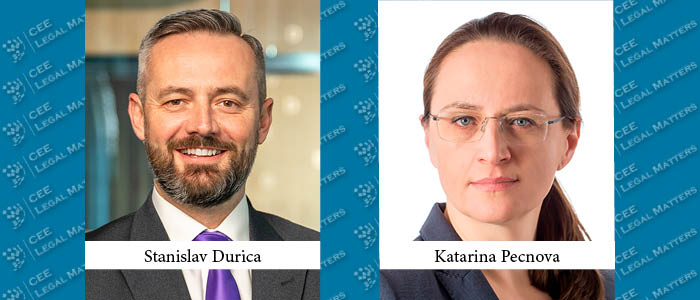The Slovak Republic’s amendment to the Whistleblowers Protection Act widens the scope of protection, shortens deadlines, and increases fines for non-compliance. Most provisions took effect on July 1, 2023, with some coming in on September 1, 2023.
Extension of Protection: The amendment expands the definition of a whistleblower and the group of people protected by the Whistleblowers Protection Act. Previously, whistleblower protection only applied to those in employment relationships, but it now covers others: self-employed contractors, company officers, interns, volunteers, etc. Close relatives, people who have helped the whistleblower, and partners or subsidiaries of the whistleblower are also protected. It broadens the definition of “anti-social behavior” to include a wider range of offenses due to the reduction of the upper penalty level’s qualifying criterion from three years to two years. It also defines a retaliatory measure as any action taken against a whistleblower or others for reporting information about anti-social activity if such action is likely to cause harm to the whistleblower or other protected individuals. It specifies examples of retaliatory measures, but others not expressly listed may also apply.
Employer’s Obligations: Employers are required to name a person within their organization who is responsible for verifying whistleblower notifications. Traditionally, many companies have outsourced this function to an external provider. The amendment limits the possibility of outsourcing to someone outside the organization – only employers which are not public authorities and have less than 250 employees will be eligible to do so.The types of employers that are obliged to set up an internal whistleblowing system have been expanded to include public authorities and businesses with at least five employees, that offer financial, transportation safety, or environmental services. The whistleblower’s written consent is required before information about their identity can be revealed.
The employer is responsible for ensuring an effective process for reporting anti-social activities and is obligated to take appropriate action against any employee who prevents the reporting of an incident or the proper recordkeeping of such reports. Failure to comply with these obligations can result in fines for both employers and individuals.
Time Limits: The amendment shortens the time limit in which the employer must verify the information and notify the whistleblower of the results to 90 days following the acknowledgment of receipt of the notification.
Previously, the employer was required to verify the notification within 90 days of receiving it, and in some cases, had the option to extend this by an additional 30 days. The employer was required to inform the whistleblower of the investigation’s findings within an additional window of 10 days. In cases where the notification is referred to the police for criminal proceedings, the amendment keeps the 10-day window for informing the whistleblower of the investigation’s findings. It is no longer possible to extend the deadline for investigating and responding to allegations, regardless of how complex the matter may be. The Whistleblower Protection Office may impose a penalty for missing the deadline. The downside is that it is sometimes impossible to finish an investigation in such a short time, especially when multiple countries, individuals, and issues are involved, or when the scope of the investigation expands as new facts come to light.
Sanctions: The amendment increases fines for administrative offenses while simultaneously adding new offenses: (a) An employer which takes (or threatens to take) an employment action against a protected person or whistleblower, without the approval of the Whistleblower Protection Office, can be fined up to EUR 100,000. (b) An employer which has at least 250 employees and has violated any of the legal requirements relating to internal whistleblowing systems can be fined up to EUR 100,000. (c) An employer that fails to take action to address violations found during the compliance inspection or fails to provide the Whistleblower Protection Office with a written report on those violations can be fined up to EUR 30,000. Fines for those who threaten or penalize a whistleblower for reporting an incident, reveal the identity of the whistleblower, or prevent the reporting of an issue have been increased from EUR 2,000 to EUR 6,000. In some cases, fines may be doubled to EUR 12,000.
What Now? To ensure compliance with the amended Whistleblowers Protection Act, companies should analyze who is entitled to whistleblower protection, which actions could constitute anti-social behavior, and which could constitute retaliation. They should also ensure that their policies and processes are compliant with the law and address any potential risks. In the event of a reported incident, companies should ensure proper communication with the Whistleblower Protection Office and abide by its requirements.
By Stanislav Durica, Partner, and Katarina Pecnova, Managing Counsel, Dentons
This article was originally published in Issue 10.9 of the CEE Legal Matters Magazine. If you would like to receive a hard copy of the magazine, you can subscribe here.


